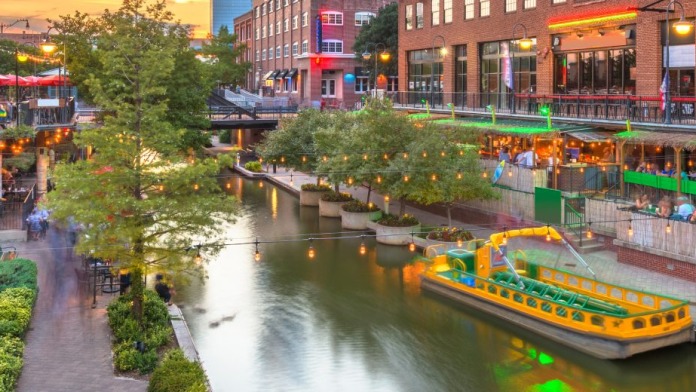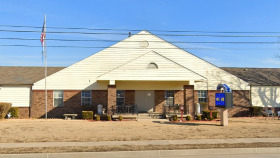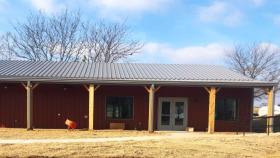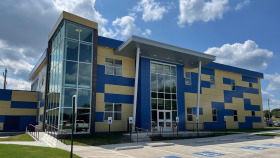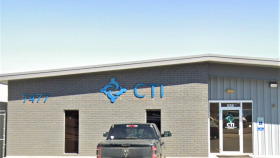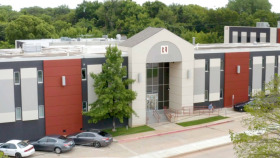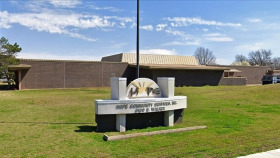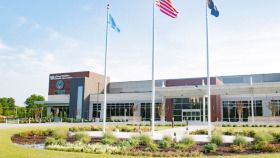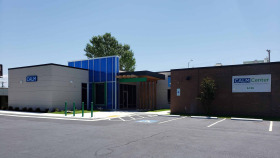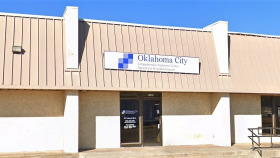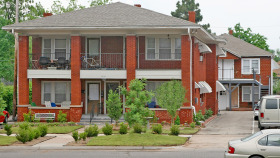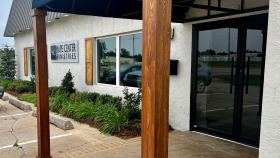Expert Insights
When I think of the lawsuits filed against the opioid pharmaceutical companies, I immediately think of the multitude of states who filed suit and recently won enormous settlements from Big Pharma. What I wasn’t aware of, however, is that the Cherokee Nation had filed its own suit against the pharmaceutical manufacturers…and won. In fact, the Cherokee Nation won one of the largest settlements the opioid industry paid out: $75 million. Their case was filed back in 2017, claiming that overdoses caused by opioid painkillers more than doubled between 2003 and 2014.
A look at the numbers reveals just how badly the Cherokee citizens have been impacted by the opioid crisis. Despite only making up 6% of Oklahoma’s population, an astounding ⅓ of all the opioids distributed throughout the state went to Cherokee Nation communities. As a result, reservations in Oklahoma were overrun with health and addiction issues. The Cherokee plan to use the settlement money to start more harm reduction programs.
~ Kerry Nenn
How Much Does Drug Rehab Cost in Oklahoma?
Oklahoma is ranked 5th nationwide in terms of addiction treatment affordability, with an average cost of drug and alcohol rehab of $54,475 (without insurance).
- Medical detox is the most expensive, with an average cost of $134,301
- Inpatient drug rehab in Oklahoma costs an average of $48,071
- Outpatient addiction treatment in Oklahoma costs and average of $7,988
- Outpatient methadone treatment is the most affordable, with an average cost of $7,097
How to Pay for Drug Rehab in Oklahoma
As of 2024, there were over 210 drug rehab facilities across the state of Oklahoma. These facilities accept several payment methods. Of those treatment facilities, the following numbers reflect how many accept their respective payment methods:
What Are Low-Cost and Free Drug Rehab Options?
There are no state-operated drug or alcohol rehab centers in Oklahoma.
The state oversees the certification of Certified Community Behavioral Health Clinics (CCBHC). These centers are privately operated and meet standards of care set by the state for addiction treatment. The CCBHC provides services regardless of the patient’s ability to pay.
Some facilities in Oklahoma have free, low-cost, and sliding-scale programs for people who cannot otherwise afford care. You may also be able to arrange a payment plan to spread your costs out over time.
Private Pay and Insurance
According to the Affordable Care Act, signed into law in 2010, substance use disorders must be a covered benefit at the same parity of medical and surgical coverage for most insurance providers.
There are many major commercial health insurance carriers in the state of Oklahoma. As of 2024 there were 7 insurance companies offering plans on the Insurance Marketplace. Commercial insurance providers include:
UnitedHealthCare
Addiction treatment is covered through UnitedHealthCare. Benefit plans differ, so individuals will need to check their explanation of benefits (EOB) summary to find out what are covered services and what the out-of-pocket cost will be.
Individuals or family members can call the UHC toll-free helpline for information regarding treatment options, provider directory and resources in their community. They can also get support if they or someone they love is in crisis.
Aetna Better Health of Oklahoma
Aetna Better Health of Oklahoma covers substance use disorder treatment. Coverage and out-of-pocket expenses depend on the individual’s benefit plan. These services include inpatient and outpatient treatment, online and in person counseling services, and case management. Medication assisted treatment using Suboxone, Vivitrol or methadone may also be covered. Prior authorization and prior notification for some services is required for coverage.
Cigna
Drug and alcohol addiction recovery programs are a covered benefit with Cigna. These services may include inpatient and outpatient treatment options, counseling and case management. The covered services are based on the individual’s benefit plan and may need prior authorization. Individuals should check their benefits plan or call the insurance company to determine coverage and what the out-of-pocket cost will be.
Medica
Medica covers substance use disorder treatment but the amount of coverage and coverage stipulations depend on what type of policy an individual holds. Medica offers insurance through employers, through the marketplace and as a Medicaid service. Individuals should check with their provider to determine coverage and out-of-pocket expenses. As well, prior authorization may be needed prior to seeking any treatment or services. An additional benefit includes a 24/7 nurse call line where licensed professionals can assist individuals with finding the resources they need.
Blue Cross Blue Shield of Oklahoma
BCBS of Oklahoma offers insurance through employer sponsored plans, the marketplace- where individuals and families can purchase coverage plans, and Medicare. They cover alcohol and substance use disorder and follow the Affordable Care Act essential requirements for coverage. Covered services will depend on the type of policy. Individuals should contact their provider to determine what services are covered and what the out-of-pocket expenses will be. Prior authorization or referrals may be needed for some plans.
Medicaid
Oklahoma provides health insurance coverage for residents who meet certain criteria such as income level, state residency, be a U.S. citizen or national, adults with children under the age of 19, pregnant women, those with disabilities, women under the age of 65 and in need of breast or cervical cancer treatment, and those who are 19-64 years of age who are in need, but not eligible for Medicare. These Medicaid plans cover inpatient and outpatient substance use disorder treatment services at facilities that accept this type of insurance.
Prior authorization is often required for services. Participants should contact their insurance provider to determine what are covered benefits, what out-of-pocket costs they may incur and to help them locate providers that participate in the SoonerCare program.
Medicare
Medicare provides insurance coverage for individuals over the age of 65 and in some cases individuals with disabilities and certain disorders. Medicare Part A pays for inpatient substance abuse treatment. Clients are required to pay the same co-pays they would be charged for any other type of inpatient hospitalization.
For those with Medicare Part B, outpatient substance abuse treatment services from a clinic or hospital outpatient department are covered. Medicare Advantage plans can help pay for services such as prescription drug coverage that is not covered as a part of Part A or Part B. Services must be received at a Medicare participating facility or practice.
Military Insurance
TRICARE and VA benefits are accepted at participating providers throughout the state of Oklahoma. For those with substance use disorders, the Veterans Administration offers inpatient and outpatient services at their clinics and hospitals at no cost.
Tribal funding/programs
All individuals of Native American or Alaska Native descent are eligible for health care and Medicaid through the Indian Health Service (IHS). Addiction recovery programs are covered services. There are many programs located throughout Oklahoma, and include:
The Ponca Tribe Hope and Recovery Center offers adult men and women of Native American descent, inpatient residential treatment at their facility in Ponca City, Oklahoma. Clients must have a valid Tribal Certificate of Degree of Indian Blood (CDIB) to receive services. This program offers individual and group therapy, parenting classes, alcohol and substance use education, as well as, traditional and cultural activities.
The Osage Nation Treatment Center is a residential alcohol and substance use disorder treatment located within the Osage Nation, Oklahoma that provides services to Native Americans 18 years and older. This program offers culturally competent evidenced based treatment plans.
The Choctaw Nation of Oklahoma Recovery Center in Talihina, Oklahoma offers adults of Native American descent residential treatment for alcohol and substance use disorder. Individuals must have a valid Certificate of Degree of Indian Blood (CDIB). Those of Choctaw heritage can reside anywhere in the United States, while those of other tribal affiliations must reside in the Choctaw Nation reservation to receive services. Their program includes individual and group therapy, they follow a 12 step approach and offer relapse prevention services.
Other Low-cost Options
For those individuals without commercial insurance, government sponsored insurance, or insurance through military service, some providers will accept sliding scale payment options, no fee for service, or financial aid. Clients will need to speak with service providers to find out what options are available to them.
Some facilities with these payment options include but are not limited to: Lighthouse Behavioral Wellness Centers, The Virtue Center and , Addiction and Behavioral Health Center.
Lighthouse Behavioral Wellness Centers are located throughout Oklahoma and offer outpatient substance abuse disorder treatment. Their organization does not refuse care based on the inability to pay. They provide services for both children and adults including individual and family therapy, case management, and recovery support.
The Virtue Center, in Norman, Oklahoma is a 501 (C)(3) organization, sponsored by the United Way and private donor contributions. Services include outpatient individual and group therapy, Medication Assisted Treatment plans (MAT), case management, intensive outpatient treatment and couples and family therapy for those who are experiencing addiction crisis and may need reduced fee or free treatment options.
Addiction and Behavioral Health Center, located in Ada, Oklahoma is an Oklahoma Department of Mental Health and Substance Abuse Services funded organization. For those in need of substance abuse treatment, they offer a sliding scale fee payment option and will not turn any individuals away for the inability to pay. ABHC offers outpatient individual, group and family therapy by licensed alcohol and drug counselors and other qualified professionals.
Free Addiction Treatment Resources in Oklahoma
The costs of addiction treatment can be a significant barrier to care, but there are solutions. There are 137 low cost or free addiction treatment centers in Oklahoma. Their services include inpatient and outpatient treatment options, including intensive outpatient treatment, relapse prevention, and aftercare programs. Some of these treatment options also include medication assisted treatment, where clients receive medications such as naltrexone, methadone and buprenorphine to ease withdrawal symptoms and decrease cravings.
Because many individuals experiencing alcohol and substance use disorder also have co-occurring mental illnesses such as bi-polar disorder, depression, anxiety, and PTSD, many addiction treatment centers in Oklahoma offer mental health services as well. Case management services also engage those facing homelessness, food insecurity, and unemployment by connecting clients with resources in their communities. Often, clients work with healthcare and insurance specialists to enroll in state funded health care plans such as Medicare or Medicaid.
The OK I’m Ready
A service provided through the Oklahoma Mental Health and Substance Abuse Services. One program they offer for Oklahomans is their risk reduction service. Narcan, an opioid overdose reversal medication, can be obtained without a prescription at local pharmacies, at vending machine like stations in high risk areas, and through their online program. Ok I’m Ready also provides education on overdose detection and the use of Narcan. This is a free program.
The Mental Health Association of Oklahoma
provides services in the Tulsa and Oklahoma City area. Their mission is to help those affected by substance use disorder and homelessness. They provide outreach services including their street medicine program. They provide medical services by licensed medical providers in the community offering basic medical services, case management, and resource referrals. Additionally, they offer programs to help individuals in crisis through rapid re-housing and food programs.
The 2-1-1 Service of Oklahoma
A program offered by Heartline in western Oklahoma and The United Way in the eastern part of the state. This service offers Oklhomans resources for alcohol and substance use disorder education, prevention services and treatment information. Their 2-1-1 Service is a resource that can be accessed from any Oklahoma county by dialing 2-1-1 on a cell or landline telephone. Here one can reach care workers that can answer questions and direct them to services. Additionally, they can offer resources for those who may face homelessness, food and medical service insecurity and domestic abuse.
Substance Abuse and Mental Health Services Administration
SAMHSA offers a national program called, “Talk, They Hear You”. This program can offer help to Oklahoman parents with children who are under the age of 21 and concerned about underage drinking and substance misuse, find education and resources that will help them reduce and prevent underage drinking and illegal substance use.
Through their website, parents can locate talking points, videos, and resources to help them talk to their children about the dangers of underage drinking and substance use. This program is not only beneficial for parents but also serves as a resource and educational site for educators and community members that want to take action in their community.
Oklahomans for Equality
A LGBTQIA+ advocacy organization with centers throughout Oklahoma. In addition to their many programs supporting the community, they offer recovery programs such as smart recovery meetings, a S.O.S recovery meeting ,and Heavy Metta Recovery Dharma. Their goal is to create a non-judgemental place for people to find the help they need.
They partner with other organizations within the community, such as 12&12 inc, The Center for Therapeutic Interventions and Stop Harm on Tulsa Streets connecting individuals to the resources within their community to help them on their recovery journey.
Oklahoma Drug Use Statistics
In 2021, 17.2% of adults in the state of Oklahoma reported using drugs for non-medical reasons.1 In 2020, about 12.8% of adults in Oklahoma said they engaged in excessive drinking, which includes past-month binge drinking or heavy drinking.2

Men (23.4%) were more likely to engage in drug use than women (11.3%).

Men (17%) were also more likely to engage in excessive drinking compared to women (8.8%).

People listing their race as “other” reported the greatest incidence of drug use at 31%.

Hispanic, White, and multi-racial people reported excessive drinking rates at around 13%.
Drug Laws in Oklahoma
9-1-1 “ Good Samaritan Law”
The 9-1-1 Good Samaritan Law protects individuals from being charged with possession of drugs if they are trying to get medical help for themselves or someone else who is overdosing. It will also protect individuals from being charged with possession of drugs if you carry and administer naloxone.
Medical Marijuana Laws
Medical marijuana became legal in Oklahoma in 2018 under 63 O.S. § 420, OAC 442:10-2-8This law allows for individuals with certain medical conditions to obtain legal authorization for marijuana use from a licensed and authorized medical provider. Under this law, individuals can possess:
- Up to 3 oz. (84.9 g) of marijuana on their person
- 6 mature marijuana plants and the harvested marijuana
- 6 seedling plants
- 1 oz. (28.3 g) of concentrated marijuana
- 8 oz. (226.4 g) of marijuana in your residence
- 72 oz. (2,037.6 g) of edible marijuana
- 72 oz. of topical marijuana
According to medical marijuana legislation, 63 O.S. § 425 (D),, licensed individuals cannot be denied custody or visitation or other parenting time with their children.
Under medical marijuana statute 63 O.S. § 427.8 (H) – (I) employers cannot discipline, fire or refuse to hire individuals with valid medical marijuana use authorization. Employers do not have to allow for individuals to have marijuana at work. Employees with authorization for medical marijuana use can not be fired for positive marijuana tests.
Under medical marijuana legislation 63 O.S. § 425 (A) individuals with authorized medical marijuana use can not be refused housing unless failing to do so would cause a financial or licensing-related loss under federal law or regulations.
Under medical marijuana legislation 63 O.S. § 425 © individuals with authorization to use medical marijuana must be considered like any other prescribed medication and can not cause an individual to be refused care.
Under medical marijuana legislation 63 O.S. § 427.8 (L), OAC 442:10-2-11, smoking marijuana outdoors in public or indoors at their place of employment is subject to the same laws as smoking tobacco in public.
Oklahoma’s Social Host Law
Oklahoma’s Social Host Law finds that individuals that provide a private location for people under the age of 21 to illegally drink alcohol are legally accountable. This pertains to property that is owned or leased. The responsible person does not have to be physically at the location during the time of underage consumption to be held responsible.
First time offense is subject to a $500.00 fine. If someone is hurt or killed, the person responsible for the property could face a felony charge punishable by up to 5 years incarceration and a fine up to $2,500.
Repeat offenders will face increased fines. Three or more will be considered a felony with up to 5 years in prison and a $2,500 fine.
Oklahoma’s Controlled Substance Possession Law
Passed in 2017, Oklahoma’s Controlled Substance Possession Law made any possession of a controlled substance without a valid prescription unlawful and subject to a misdemeanor charge. The penalties include jail time of up to 1 year and fines up to $1,000. Additionally, a $100 fine payable to the Trauma Care Assistance Revolving Fund is required.
Those found to be in possession with intent to distribute or those who manufacture controlled substances face much harsher punishments, including higher fines and longer incarceration times.
Resources
- Drug Overdose. (n.d.). Health Department.
- FindTreatment.gov. (n.d.). FindTreatment.gov.
- America’s Health Rankings. (2021). Non-Medical Drug Use – Past Year In Oklahoma.
- America’s Health Rankings. (2020). Excessive Drinking In Oklahoma.
- Medicare. (2022). Inpatient hospital care.
- Medicare. (2022). Mental health care (outpatient).
- Oklahoma Health Care Authority. (2022). Mental Health and Substance Abuse Services.
- Oklahoma State Legislature. (2021). Title 63. Public Health and Safety
§63-2-401. Prohibited acts A – Penalties. - Oklahoma State Legislature. (2018). Bill Information for SB 1367.
- Oklahoma Mental Health and Substance Abuse. (2022). Oklahoma Drug Courts.
- Oklahoma State Department of Health. (2022). Naloxone.
- OK I’m Ready. (2022). Overdose.
- OPQIC. (2022). OPIOID & SUBSTANCE USE: FREE NALOXONE KITS.

